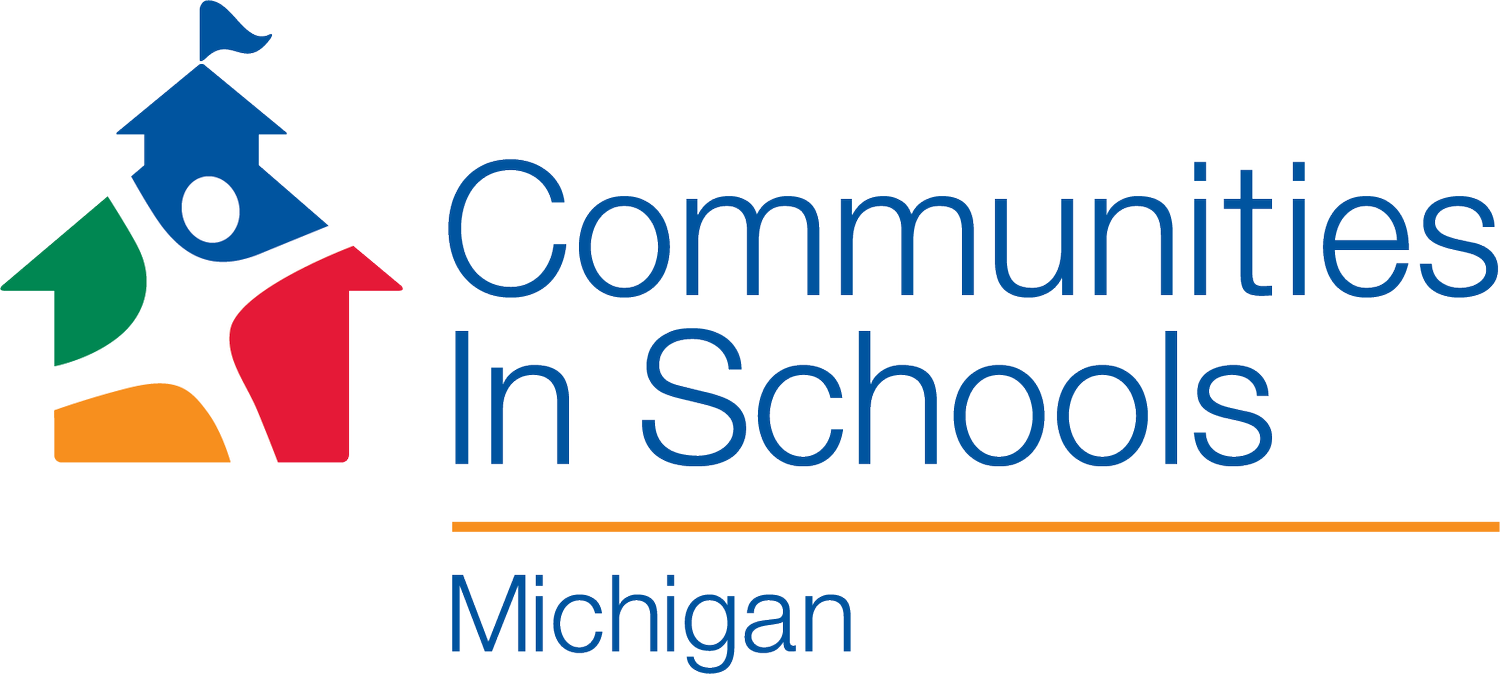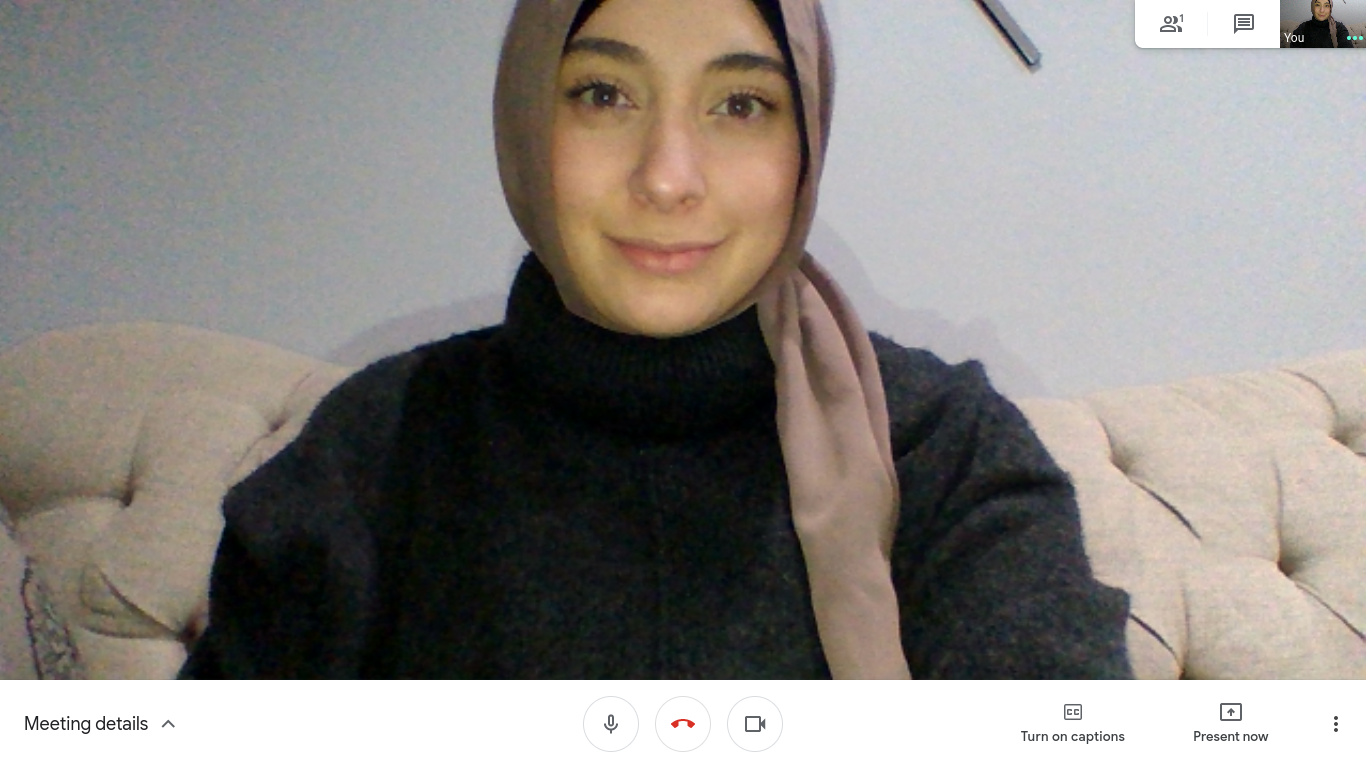Site Coordinators Are Essential
Site Coordinators Are Essential
Conversations with Zainab Chokr & Melissa Bulter
"I am definitely not going to forget this!" said Zainab Chokr, a Site Coordinator in Dearborn Public Schools for Communities In Schools of Michigan, "Being essential during the pandemic, and to be that one person your students and families know they can trust is extra special."
Zainab and I did a call in May, and we talked about all the ways she and her team members are supporting the families of Dearborn, from emotional support to basic needs distributions at schools and food deliveries. "We help with basic needs too. It's beyond that; Site Coordinators are someone to talk to from the inside, but not the inside."
As a Site Coordinator, Zainab helps out all students at her school, but there is a specific group of case-managed students who get special attention. The targeted supports and relationships with her case-managed students and families haven't stopped just because schools are closed. Zainab shared how grateful she is that these relationships have continued even though, "it has required tweaking and adjusting."
"You have these kids that are waiting for your phone call—smiling ear-to-ear—telling their parents that they have to talk to me first. They know that they have a support person. We are there for our kids." Site Coordinators like Zainab are working with partner agencies to get the families in Dearborn what they need. Zainab explains how, "There are other supports out there, but none of them are individualized and one-on-one."
During her weekly calls with her case-managed students, "We can talk about assignments, announcements, etc. I am helping to keep them up to date with the stories from the news." Zainab is helping families to understand new government initiatives like EBT cards and state mandates. "It's like: here is what is going on today. I also talk to teachers and teachers check-in with me when they can't get a hold of a student."
"I had this student yesterday who said she was doing her work. I got a call from her teacher saying she hadn't turned anything in. When she called, she confessed that she hadn't actually been doing her work 'I need your help now!' I am still that go-to person, instead of someone who just harps on them. We just moved on from there. We set a schedule, and I helped make sure she got caught up. These kinds of calls reassure me."
“ 'Hey, I am essential!' It feels good to know that you're essential and positively impacting others.”
Zainab confesses, "Of course, it is not the same. Still, I wish it was more interactive, although, if a student isn't interactive, their families are. I give lots of information for parents." When Zainab has a check-in with one of her students it always starts with the parents. "My weekly calls start with families, 'Hey Mom, how are you feeling, what do you need, do you have x, y, and z? How is Ramadan?' They share how this is getting overwhelming and hard. I share whatever updates there are from the school district. They know it's real when they hear it from me, and they know that I am their support person. I have even spoken to dads." Sometimes she spends 20 minutes just answering questions.
It’s Personal
This pandemic is impacting everyone. It has created a common ground for Zainab to relate with her students and families. The impact of COVID-19 is personal for Zainab, "My family is on the front line working at the hospital. What if I have it and I don't know? When I talk to my students, it helps ease the stress from my personal life. It is like I can focus on them, and I feel like my stress levels are put to the side. I know that my students and families are probably going through the same thing, but not knowing what is going on."
When the school closures happened, and CIS of Michigan switched to supporting students and families remotely, her first response was: "No way am I going to be able to case-manage! I was very skeptical at first. How is this going to work? I worried that it would not be productive or beneficial... I thought the students would not want to interact with me. It's the opposite, and they do want that phone call. The conversations get better every day."
Like many people, Zainab has "had a roller coaster of emotions." "I enjoy having something to do during this pandemic. I am thankful for that. Having this job has made it less stressful. Reading nonessential and thinking, 'Hey, I am essential!' It feels good to know that you're essential and positively impacting others."
Family Outreach in Battle Creek
This work is not just happening in Dearborn. Communities In Schools Site Coordinators are helping students and families in seven communities. I had the chance to speak with Melissa Butler, a Site Coordinator in Battle Creek, about how COVID-19 has impacted her and her community. Melissa shared how she regrets not giving her two kids what they need as a mom. It feels like she is working 24 hours a day. In many ways, Site Coordinators are working more than ever. She is learning how to manage and explained, "You need to learn to shut it off. I have to learn I am going to be there tomorrow."
The school Melissa works at sees her as a backbone to the school. In the six years, she has served at her school, they have had a different principal every year. She is very close to the families there. They know to go to Melissa when they need help, "You are the lifeline connection to these families. Some of these families are single dads. You need to earn their trust."
Melisa and her CIS colleagues in Battle Creek were implementing supports and connecting with families as soon as the schools closed. It has included providing thousands of meals to emotional support. Sometimes it is just the simple act of checking in, or as Melissa put it, "You need to call and give them something positive."
Melissa shared a story about turmoil in one of her student's home where the police were called. "Those are the students we have to worry about," Melissa expressed, "He is out of his comfort zone. At school, he has structure. Now there is nothing." She is worried about the trauma from the COVID-19, "And what it's going to add to the trauma the student already has."
The traumatic experiences of the students and families in Battle Creek are real. Melissa works to address the effects of trauma through her relationships with families and connecting them with partner organizations. Melissa confesses, "Sometimes they think we are miracle workers. We don't always have the right answers for them." Her families need support in overcoming challenging circumstances, in this case, the impacts of school closures, financial stress, and the need to educate their kids at home. Her families reach out to her, "In hopes that we can throw them a lifeline."
Final Thoughts
At the end of our conversation, Melissa shared that despite how overwhelming these last few months have been with COVID-19 and supporting her students in the school closures, she said, "I do it for the love of these kids." Her community partners have also stepped up to the plate to meet the needs of the school and families.
Zainab's reply when asked what she is going to remember the most from this time was: "It's probably better to ask, 'What are you going to forget!' "
The relationships fostered during this time would be hard to forget.



